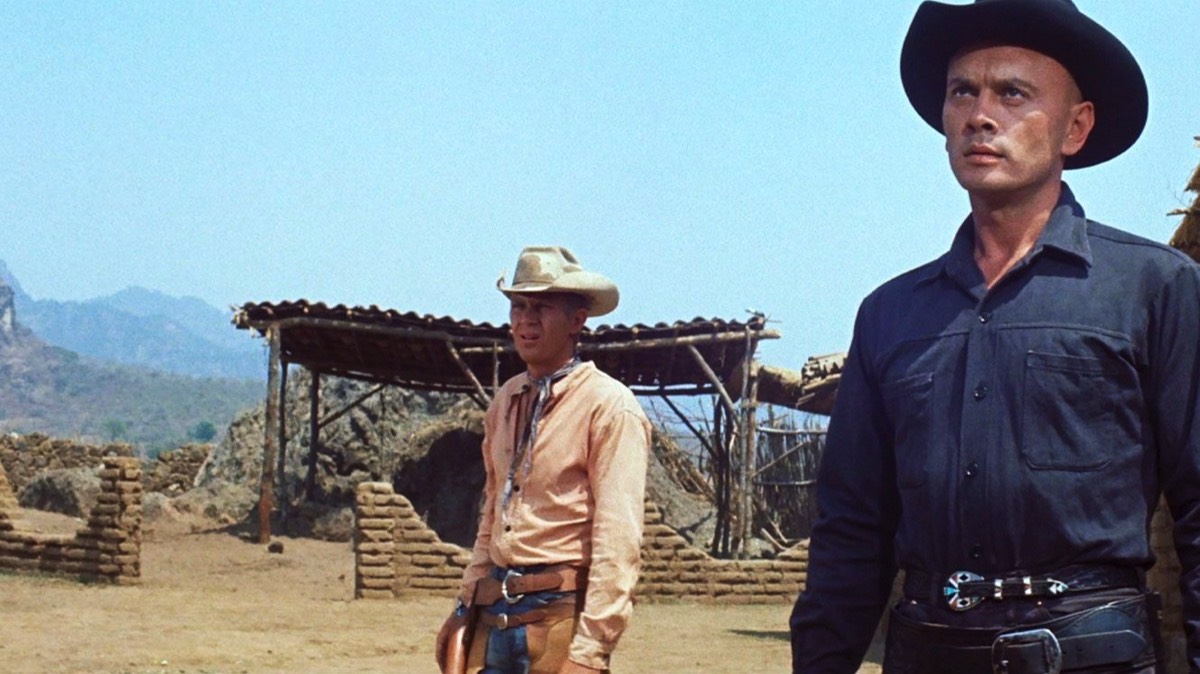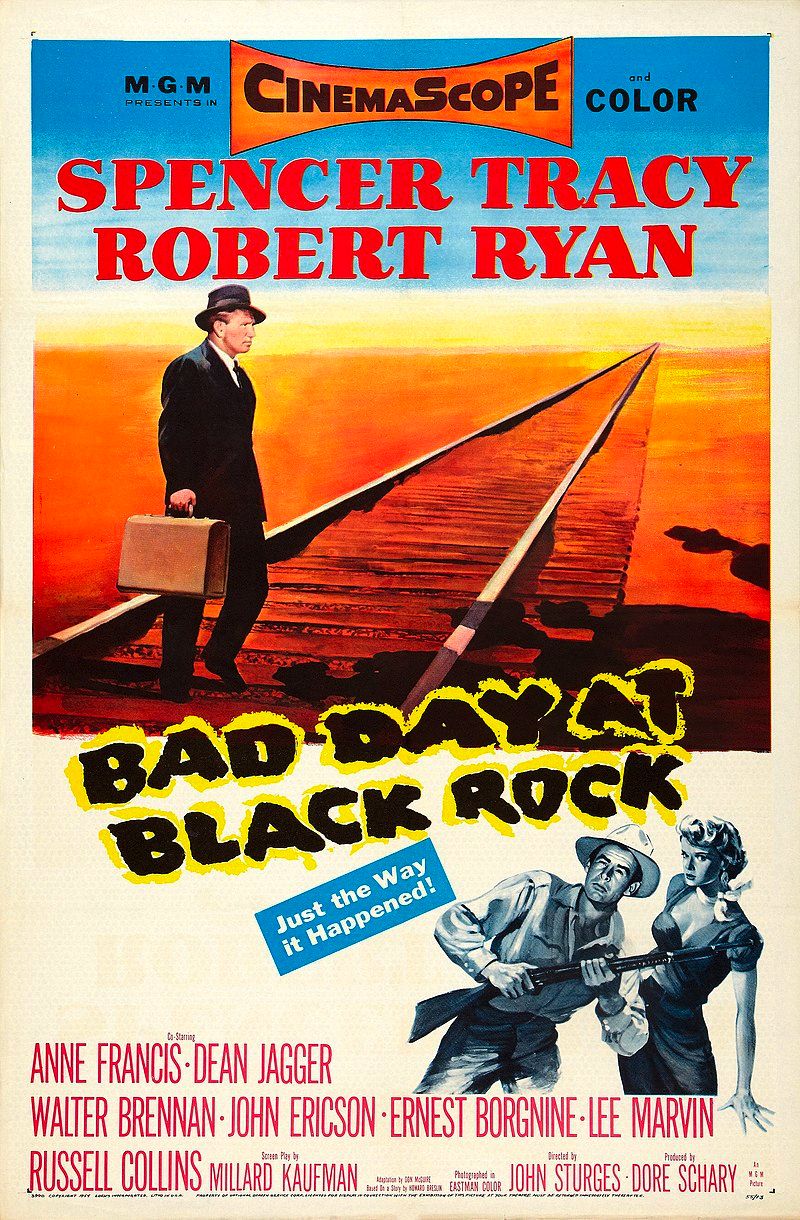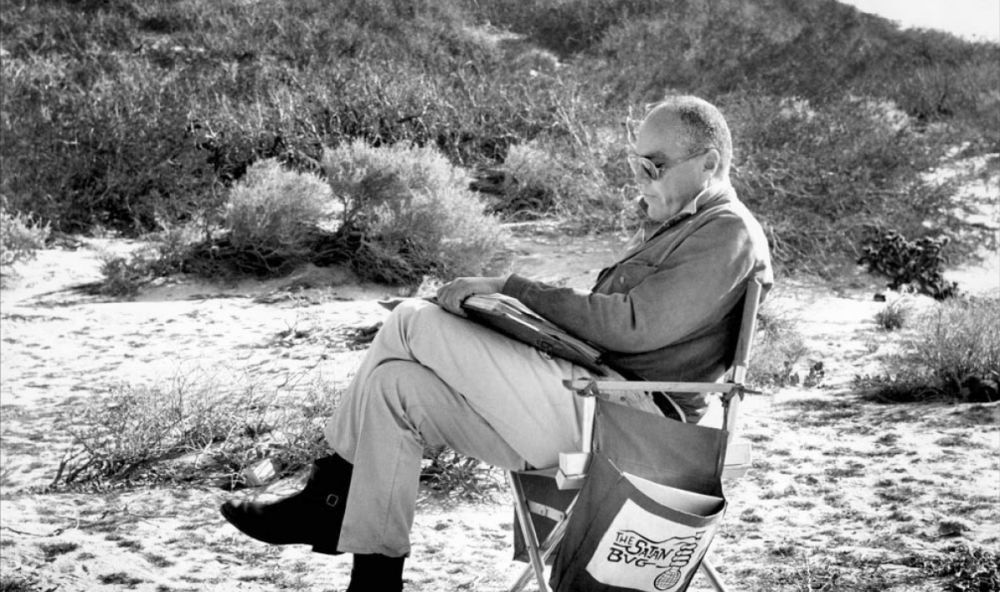"When it came to action films, especially in the 1950s and 1960s, this American director's were as vivid and exciting as any… Best of all were his westerns: a brilliant sense of colour control backed an immense flair for blazing action… While he had not quite the visual sense or genuine feel for the genre that Ford or Peckinpah showed, Sturges' adventure films were just as likely to send you out of the cinema tingling." - David Quinlan (Quinlan's Film Directors, 1999)
John Sturges
Key Production Country: USA
Key Genres: Western, Thriller, Action, Drama, War Adventure, Traditional Western, Psychological Thriller, Science Fiction, Spy Film, Adventure, Action Thriller, Mystery
Key Collaborators: Ferris Webster (Editor), Cedric Gibbons (Production Designer), Robert Surtees (Cinematographer), Charles Lang (Cinematographer), Daniel Fapp (Cinematographer), Donald Pleasence (Leading Character Actor), William Campbell (Leading Character Actor), Dimitri Tiomkin (Composer), Elmer Bernstein (Composer), Spencer Tracy (Leading Actor), Burt Lancaster (Leading Actor), Steve McQueen (Leading Actor)
Key Genres: Western, Thriller, Action, Drama, War Adventure, Traditional Western, Psychological Thriller, Science Fiction, Spy Film, Adventure, Action Thriller, Mystery
Key Collaborators: Ferris Webster (Editor), Cedric Gibbons (Production Designer), Robert Surtees (Cinematographer), Charles Lang (Cinematographer), Daniel Fapp (Cinematographer), Donald Pleasence (Leading Character Actor), William Campbell (Leading Character Actor), Dimitri Tiomkin (Composer), Elmer Bernstein (Composer), Spencer Tracy (Leading Actor), Burt Lancaster (Leading Actor), Steve McQueen (Leading Actor)
"At his best, he orchestrated his gung-ho action movies like delicate symphonies, expertly counterpointing loud bangs with quiet anticipation, set pieces with slow burn. There was an eloquent simplicity to his narrative thrust, which usually centred on a moral code of man's-gotta-do chivalry, where the reluctantly righteous often dispensed a brand of gruff justice. With CinemaScope, Sturges was a master of his domain, demonstrating a rugged compositional elegance and an unerring ability to frame his brawny, stoic characters in a finely calibrated choreography of macho assertion." - Lloyd Hughes (The Rough Guide to Film, 2007)
“In the 50s, Sturges acquired a reputation as a solid director of Western action on the basis of several taut productions such as Escape from Fort Bravo, Bad Day at Black Rock, Gunfight at the O.K. Corral, and Last Train from Gun Hill. In the early 60s he had solid hits with The Magnificent Seven and The Great Escape. But it was form rather than substance that characterized his work. Overall, his misses outnumbered his hits, and his successes or failures were often correlated to the quality of the scripts given to him.” - The Film Encyclopedia, 2012

The Magnificent Seven (1960)
"Certainly not the more interesting of the two Sturges, but when working with a good script he made several notable westerns, Bad Day at Black Rock (54), Backlash (56), Gunfight at the O.K. Corral (57), The Law and Jake Wade (58), and his best film, The Magnificent Seven (60). His other westerns are uninspired and, outside the western spaces, he has often fallen into complete mediocrity, as in The Old Man and the Sea (58). He was an editor and producer during 1932-42 period, and directed several army documentaries during the war." - Georges Sadoul (Dictionary of Film Makers, 1972)
"John Sturges is a rather curious case in Hollywood history: a director responsible for a trio of extremely famous films, films whose titles have all but entered the language (Gunfight at the OK Corral, The Magnificent Seven and The Great Escape) but with whose own name only specialists are conversant. Such relative anonymity is partly a consequence of the fact that he shared that name with another, incomparably more accomplished, film-maker, to whom he bore absolutely no relation, either biological or artistic - Preston Sturges, the grandmaster of screwball comedy. It can no doubt also be attributed to an exceptionally uneven filmography, one rich in dross. But it is due above all, as the almost complete absence of critical interest in his work suggests, to the fact that his films, whether good or bad, strike one as strangely impersonal affairs, rigorously bereft of stylistic trademarks or enduring thematic preoccupations. Throughout a long and prolific career he remained, more like a movie actor than a movie director, fatally dependent on the script." - Gilbert Adair (The Independent, 1992)
"His films contain perhaps the least humor of any post-World War II American director. Sturges' virtues are tense, well-hewn narratives with an emphasis on action. As such, he has shot a body of excellent Westerns." - William R. Meyer (The Film Buff's Catalog, 1978)
“Reliable Hollywood craftsman who established his reputation in the mid-1950s with a series of intense, morally charged features such as Bad Day at Black Rock (1954) and Gunfight at the O.K. Corral (1957), before moving on to bigger - though not especially better - productions.” - The Virgin International Encyclopedia of Film, 1992
"The dean of big-budget action movies made during the 1950s and 1960s has almost no reputation today, despite having directed many films that remain hugely popular… His style was clean and uncluttered; he generally eschewed fancy camera tricks, but his compositions were invariably effective and evocative. Moreover, he seldom failed to extract skillful performances from his actors." - Leonard Maltin's Movie Encyclopedia, 1995
Selected Filmography
{{row.titlelong}}
GF Greatest Films ranking (★ Top 1000 ● Top 2500)
T TSPDT N 1,000 Noir Films
R Jonathan Rosenbaum S Martin Scorsese
T TSPDT N 1,000 Noir Films
R Jonathan Rosenbaum S Martin Scorsese
John Sturges / Fan Club
Daniel Sánchez Arévalo, Quentin Tarantino, Michael Sragow, Shin'ya Tsukamoto, Roger Tennis, Kazuki Ohmori, Sathyan Ramesh, Dan Daor, Edward Buscombe, Fred Zinnemann, José Luis Guarner, John Sayles.
Daniel Sánchez Arévalo, Quentin Tarantino, Michael Sragow, Shin'ya Tsukamoto, Roger Tennis, Kazuki Ohmori, Sathyan Ramesh, Dan Daor, Edward Buscombe, Fred Zinnemann, José Luis Guarner, John Sayles.
"Fan Club"
These film critics/filmmakers have, on multiple occasions, selected this director’s work within film ballots/lists that they have submitted.
These film critics/filmmakers have, on multiple occasions, selected this director’s work within film ballots/lists that they have submitted.


